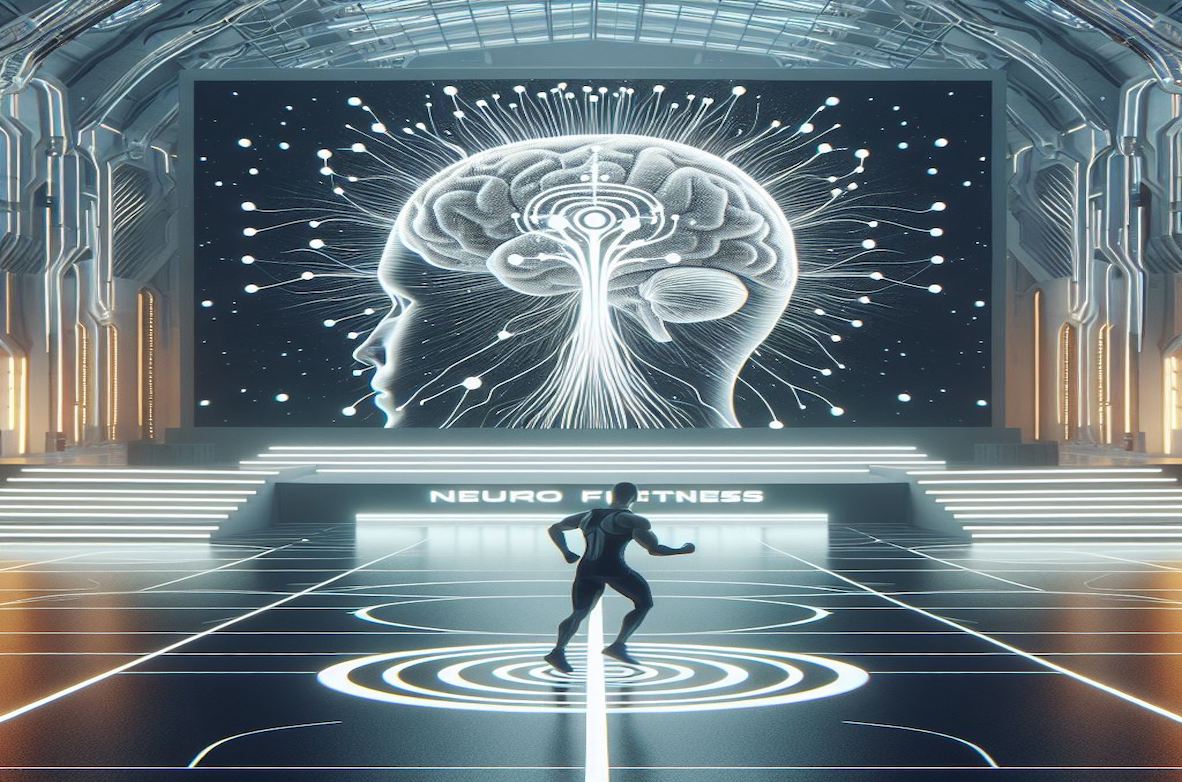The Brain Benefits of Cognitive Training: Enhancing Athletic Performance
In the realm of sports and athletics, cognitive training is emerging as a crucial component for achieving peak performance. This type of training goes beyond physical conditioning to enhance mental faculties, which are integral for focus, decision-making, and stress management. Different parts of the brain play vital roles in these cognitive functions. This article outlines which parts of the brain benefit from cognitive training and how they contribute to athletic success.
Written by Genius Gyms - May 2024

1. Prefrontal Cortex
Role in Athletics:
- The prefrontal cortex is responsible for executive functions such as planning, decision-making, problem-solving, and self-control.
- It helps athletes strategize, make quick decisions under pressure, and maintain focus during competition.
Benefits from Cognitive Training:
- Improved Focus and Concentration: Cognitive exercises like mindfulness and meditation strengthen the prefrontal cortex, enhancing an athlete's ability to stay focused and make clear decisions even under stress.
- Better Decision-Making: Training that involves strategic thinking and problem-solving can boost the prefrontal cortex’s capacity to process information quickly and accurately, crucial for in-game decisions.
2. Hippocampus
Role in Athletics:
- The hippocampus is associated with memory formation and spatial navigation.
- It helps athletes remember plays, strategies, and the layout of the playing field.
Benefits from Cognitive Training:
- Enhanced Memory: Memory training exercises, such as mnemonic devices and visualization, can improve the hippocampus’s ability to store and recall information, aiding in better game preparation and execution.
- Spatial Awareness: Activities that involve spatial memory, like navigating virtual environments, can improve an athlete's understanding of their spatial surroundings, enhancing their movement and positioning during play.
3. Cerebellum
Role in Athletics:
- The cerebellum is involved in motor control, coordination, and balance.
- It ensures smooth, coordinated movements and fine motor skills necessary for athletic performance.
Benefits from Cognitive Training:
- Motor Skills Refinement: Cognitive-motor training exercises, which combine cognitive tasks with physical movement, can enhance cerebellar function, leading to better coordination and precise movements.
- Balance and Agility: Practices such as balance exercises and proprioceptive training can strengthen the cerebellum’s role in maintaining balance and agility, crucial for dynamic sports.
4. Amygdala
Role in Athletics:
- The amygdala processes emotions, including fear and anxiety.
- It plays a role in emotional regulation and the stress response during high-pressure situations.
Benefits from Cognitive Training:
- Stress Management: Techniques like deep breathing, progressive muscle relaxation, and mindfulness can help regulate the amygdala’s response to stress, reducing anxiety and enhancing performance under pressure.
- Emotional Control: Training that focuses on emotional regulation can help athletes maintain composure and a positive mindset, even in challenging situations.
5. Basal Ganglia
Role in Athletics:
- The basal ganglia are involved in habit formation, procedural learning, and voluntary motor control.
- They help automate movements and skills through repetition and practice.
Benefits from Cognitive Training:
- Skill Automation: Repetitive practice and motor learning exercises can enhance the basal ganglia’s ability to automate complex motor skills, making movements more fluid and instinctive during competition.
- Efficiency in Performance: Cognitive strategies that promote habit formation, such as visualization and mental rehearsal, can help the basal ganglia streamline processes, leading to more efficient and effective performance.
Integrating Cognitive Training for Optimal Brain Benefits
To maximize the benefits of cognitive training on the brain, athletes should incorporate a variety of techniques and practices:
- Mindfulness and Meditation: Regular mindfulness meditation can improve focus, emotional regulation, and stress management.
- Visualization and Imagery: Mental rehearsal of skills and strategies enhances memory, spatial awareness, and motor skill automation.
- Strategic Thinking and Problem-Solving Exercises: Engaging in activities that challenge the brain’s executive functions can boost decision-making and strategic planning abilities.
- Memory Training: Techniques like mnemonics and spatial memory exercises can enhance the hippocampus’s function.
- Balance and Coordination Drills: Physical exercises that require balance and coordination can strengthen the cerebellum and basal ganglia.
Conclusion
Cognitive training offers significant benefits to various parts of the brain, each playing a critical role in athletic performance. By targeting the prefrontal cortex, hippocampus, cerebellum, amygdala, and basal ganglia, athletes can improve their focus, decision-making, motor skills, stress management, and overall mental resilience. Integrating cognitive training into regular practice not only enhances physical abilities but also equips athletes with the mental tools needed for success on and off the field.
Genius Gyms can help unlock that potential via the app and via our coaching service - Learn More
